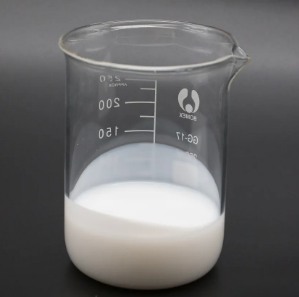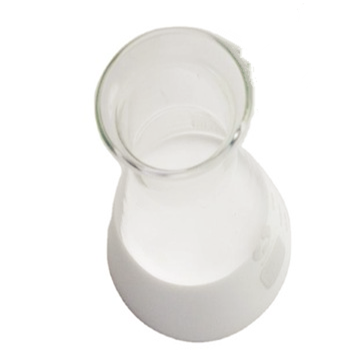Introduction to Water-Based Zinc Stearate: Linking Performance and Sustainability in Modern Manufacturing
Water-based zinc stearate is an eco-friendly alternative to solvent-based lubricants and launch representatives, using remarkable efficiency with marginal ecological impact. As sectors shift toward greener manufacturing methods, this aqueous diffusion of zinc stearate has actually obtained prominence across sectors such as rubber handling, metal creating, concrete spreading, and polymer manufacturing. Its capacity to offer effective lubrication, stop attachment, and reduce surface defects makes it a functional device in contemporary industrial applications. With expanding regulative pressure on volatile organic compound (VOC) exhausts, water-based zinc stearate stands out as a clean, effective, and scalable solution.
(TRUNNANO Water Based Zinc Stearate)
Chemical Composition and Useful Mechanism
Zinc stearate is a metal soap formed by the response of stearic acid with zinc oxide or zinc salts. In its water-based formula, it is normally spread making use of surfactants or emulsifiers to ensure security and uniform application. When put on surfaces, the zinc stearate particles develop a slim, hydrophobic film that lowers rubbing and prevents straight get in touch with in between materials. This device is vital in mold and mildew launch operations, where it helps with very easy demolding without damaging the final product’s surface area stability. In addition, its high melting factor (~ 120– 130 ° C) allows it to execute successfully under modest thermal problems, keeping capability during high-temperature procedures.
Applications in Rubber and Polymer Processing
In rubber production, water-based zinc stearate offers dual purposes– as a mold release agent and as an interior lube. It prevents sticking between uncured rubber compounds and mold surfaces, guaranteeing regular component quality and lowering post-processing initiatives. In thermoplastics and elastomers, it boosts circulation homes throughout extrusion and shot molding, decreasing die build-up and enhancing surface area finish. Its compatibility with various polymers, including polyolefins, PVC, and engineering resins, even more broadens its energy. Moreover, its non-reactive nature guarantees it does not interfere with treating or vulcanization reactions, maintaining material efficiency characteristics.
Duty in Metal Forming and Stamping Industries
The metalworking market progressively depends on water-based zinc stearate for cool and warm developing operations. Used as a lubricant in stamping, attracting, and creating, it forms a protective limit layer that lowers device wear and boosts part surface area top quality. Compared to oil-based or wax finishes, it provides far better heat dissipation and cleaner procedure, which is especially useful in automatic production lines. In addition, its simplicity of elimination after handling– utilizing simple water rinsing or light detergents– decreases cleaning expenses and prevents deposit build-up on ended up elements. This makes it suitable for use in vehicle, aerospace, and accuracy component manufacturing.
Use in Concrete and Building And Construction Products
Within the construction field, water-based zinc stearate is commonly utilized as an inner launch agent for precast concrete components. Unlike standard oil-based products, it does not tarnish surface areas or hinder additional treatments like painting or covering. When mixed right into concrete or related to formwork, it stops bonding in between the mold and mildew and the solidified concrete, enabling easy demolding while keeping dimensional accuracy. Its reduced thickness makes it possible for also insurance coverage via splashing or brushing, making it ideal for both hands-on and mechanized procedures. Additionally, it adds to longer mold and mildew life by protecting against chemical attack and abrasion from repeated spreading cycles.
Environmental and Safety And Security Advantages Over Standard Alternatives
One of one of the most compelling advantages of water-based zinc stearate is its environmental account. Without solvents, VOCs, and harmful additives, it aligns with international sustainability goals and work health and wellness criteria. Employees take advantage of minimized direct exposure to flammable or damaging materials, and suppliers can satisfy rigid air top quality laws without additional ventilation systems. From a waste management perspective, water-based formulas are simpler to deal with and throw away safely, supporting round economic climate techniques. These qualities make it a preferred choice for companies intending to accomplish environment-friendly accreditations such as ISO 14001 or LEED compliance.
Market Patterns and Technological Innovations
( TRUNNANO Water Based Zinc Stearate )
The market for water-based zinc stearate is experiencing stable development, driven by boosting demand for environmentally friendly industrial options and more stringent ecological legislation. Makers are purchasing innovative diffusion innovations to boost security, prolong service life, and boost performance under severe problems. Advancements such as nano-dispersed zinc stearate and hybrid solutions with silicone or PTFE are being explored to offer premium lubricity and temperature level resistance. Additionally, clever delivery systems– consisting of atomized sprays and dosing systems incorporated with IoT– are making it possible for precise application control, reducing intake and operational prices.
Difficulties and Ongoing Research Study Instructions
Regardless of its advantages, water-based zinc stearate deals with specific restrictions, consisting of sensitivity to water hardness, possible microbial destruction, and lower load-bearing capacity contrasted to synthetic lubricants. To address these concerns, continuous study concentrates on optimizing emulsion stability, integrating biocides for microbial resistance, and improving practical efficiency with additive harmonies. Compatibility with different substrates and procedure conditions also stays a vital area of growth. Initiatives are underway to tailor formulations for certain applications, making certain constant efficiency across varied industrial atmospheres.
Future Prospects: Assimilation with Smart Manufacturing and Environment-friendly Chemistry
Looking in advance, water-based zinc stearate is poised to play a central duty in the change towards intelligent and lasting production. Its integration with Market 4.0 technologies– such as real-time tracking, predictive upkeep, and automated giving– will certainly enable much more reliable and flexible manufacturing process. Developments in bio-based surfactants and renewable feedstocks will additionally boost its ecological qualifications, sustaining decarbonization techniques throughout supply chains. As industries remain to prioritize resource efficiency and ecological stewardship, water-based zinc stearate represents a tactical development that balances technical efficiency with environmental obligation.
Supplier
TRUNNANO is a supplier of water based zinc stearate with over 12 years of experience in nano-building energy conservation and nanotechnology development. It accepts payment via Credit Card, T/T, West Union and Paypal. Trunnano will ship the goods to customers overseas through FedEx, DHL, by air, or by sea. If you want to know more about zinc stearate for skin, please feel free to contact us and send an inquiry(sales5@nanotrun.com).
Tags: water based zinc stearate, zinc stearate, zn stearate
All articles and pictures are from the Internet. If there are any copyright issues, please contact us in time to delete.
Inquiry us

